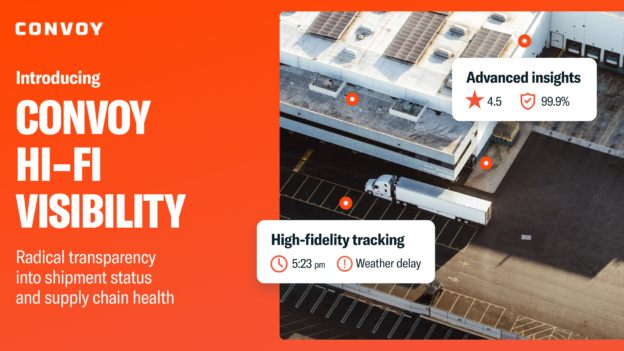5 Considerations when Hiring a Refrigerated Trucking Company
Shippers • Published on January 30, 2021
There are hundreds of companies who promise to safely deliver your refrigerated goods from one location to the next, and it can be overwhelming to validate each carrier or broker.
Beyond some of the most common carrier characteristics to consider when evaluating trucking companies, such as percentage of on-time deliveries, cost, and driver safety, working with reefer trucking companies comes with its own set of priorities for logistics teams to navigate.
Perishable, refrigerated goods can range from food to pharmaceuticals to flowers, and each transport has its own unique set of requirements. Understanding which companies offer precise temperature control, special trailer and packaging requirements, flexible equipment availability, and an environmentally-friendly transportation model will help ensure the success of your shipments.
Precise Temperature Control
Quality of equipment is paramount when transporting temperature-controlled goods.
With reefer trailers especially, it’s critical that their temperature control units are 100% accurate. Failure to maintain the proper temperature within the load could result in spoiled goods, lost time, and wasted budget.
With goods that need to maintain a specific temperature, the refrigerated trailer should be able to handle a consistent temperature across the entire journey.
Additionally, always label your pallets with any special temperature requirements, such as “KEEP REFRIGERATED” or “DO NOT FREEZE” to build in an extra layer of communication with the truck driver.
Special Trailer and Packaging Requirements
Some refrigerated goods have special requirements that a reefer truck needs to meet. Take the transport of flowers and meat, for example. Meat for consumption will need a special food-grade trailer to meet FDA requirements, but likely doesn’t require a special arrangement within the vehicle. Conversely, flowers need to be handled with the utmost care and delicacy, creating a more complex internal structure of the trailer to ensure they meet their destination safely.
Work with your carrier or broker to determine if your load has special requirements and if they can make the necessary trailer or packaging arrangements.
Visibility Into Supply Chain
Since refrigerated loads are perishable, having real-time tracking and insight into the logistics of your shipment is critical. Loads that arrive at their destination quickly are less likely to be spoiled or rejected, and tracking capabilities that keep you informed about your shipment’s location give you peace of mind that your shipment is progressing as planned.
Ask your carriers about visibility into their supply chain. Can you view the status and location of your shipment at any time? What process will you have to go through if you need to track down a truck, and how easy is that process? Do you have access to your shipment history and analytics from past shipments?
These questions will give you insights into what carrier relations would look like if anything were to go wrong with your shipment.
Flexible Availability of Equipment
Whether it’s day-to-day shipping or seasonal surges, customers expect products to be shipped exactly at their time of need. Ask potential freight partners about their tender response rates, tender response times, and how quickly they can supply transportation for a last-minute request.
Since this has historically been an issue with logistics providers, some companies are taking a new approach to freight called a digital freight network, where companies work with tens of thousands of vetted, contracted carriers so someone is always available to transport goods.
Environmental Impact of Empty Truckloads
Even if sustainability isn’t high on your checklist of considerations, it’s likely important to your customers. 91% of companies take sustainability criteria into account in purchasing decisions and 85% of consumers are more likely to buy from a company with a reputation for sustainability than from a neutral company.
With those numbers in mind, the environmental impact of your refrigerated trucking carrier is certainly a characteristic you’ll want to research during carrier evaluations.
The freight industry generates over 72 million metric tons of CO2 emissions from empty miles, with trucks hauling empty trailers accounting for over 35% of total miles driven. Companies without sustainability initiatives are looking to turn a profit at the expense of our environment.
On the other hand, many trucking companies are taking a new approach to sustainability in an effort to decrease the waste caused by empty truckloads. This is often achieved through a process called “batching”, in which multiple shipments are combined into headhaul-backhaul circuits that reduce carbon emissions from empty miles by 45%.
Narrow Your Search for a Refrigerated Trucking Company
You have what you need to find the right logistics carrier to transport your goods – now’s the time to start making your shortlist of carriers to consider. Do your research, be specific about your needs, and start reaching out to carriers who fit the bill.
If you’re in need of refrigerated trucking capacity, Convoy can help. We have hundreds of thousands of trucks in our network, and support full truckload reefer, dry van, and drop-and-hook. Contact Convoy today.



